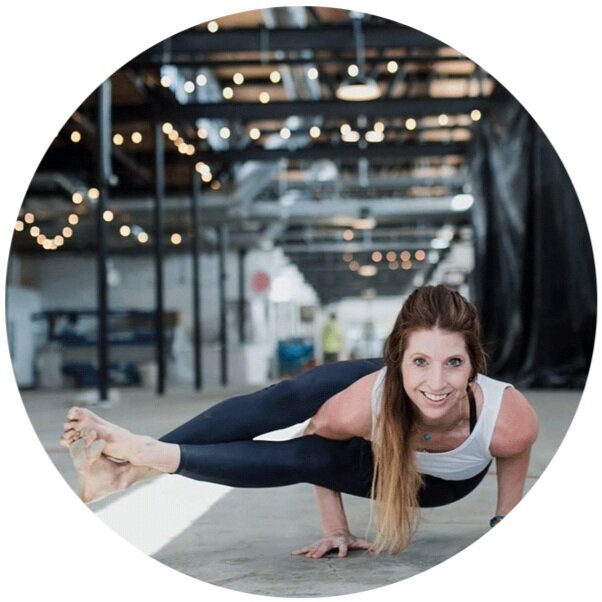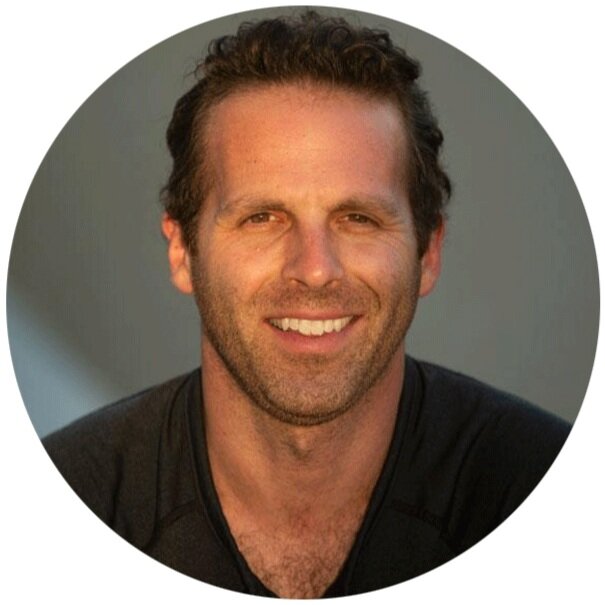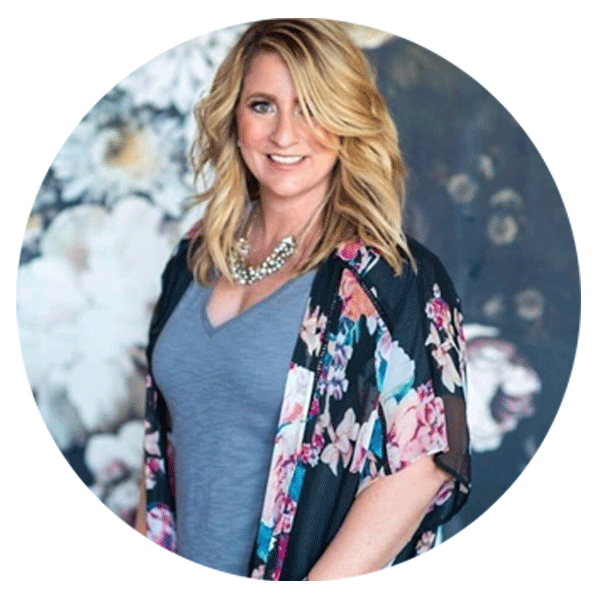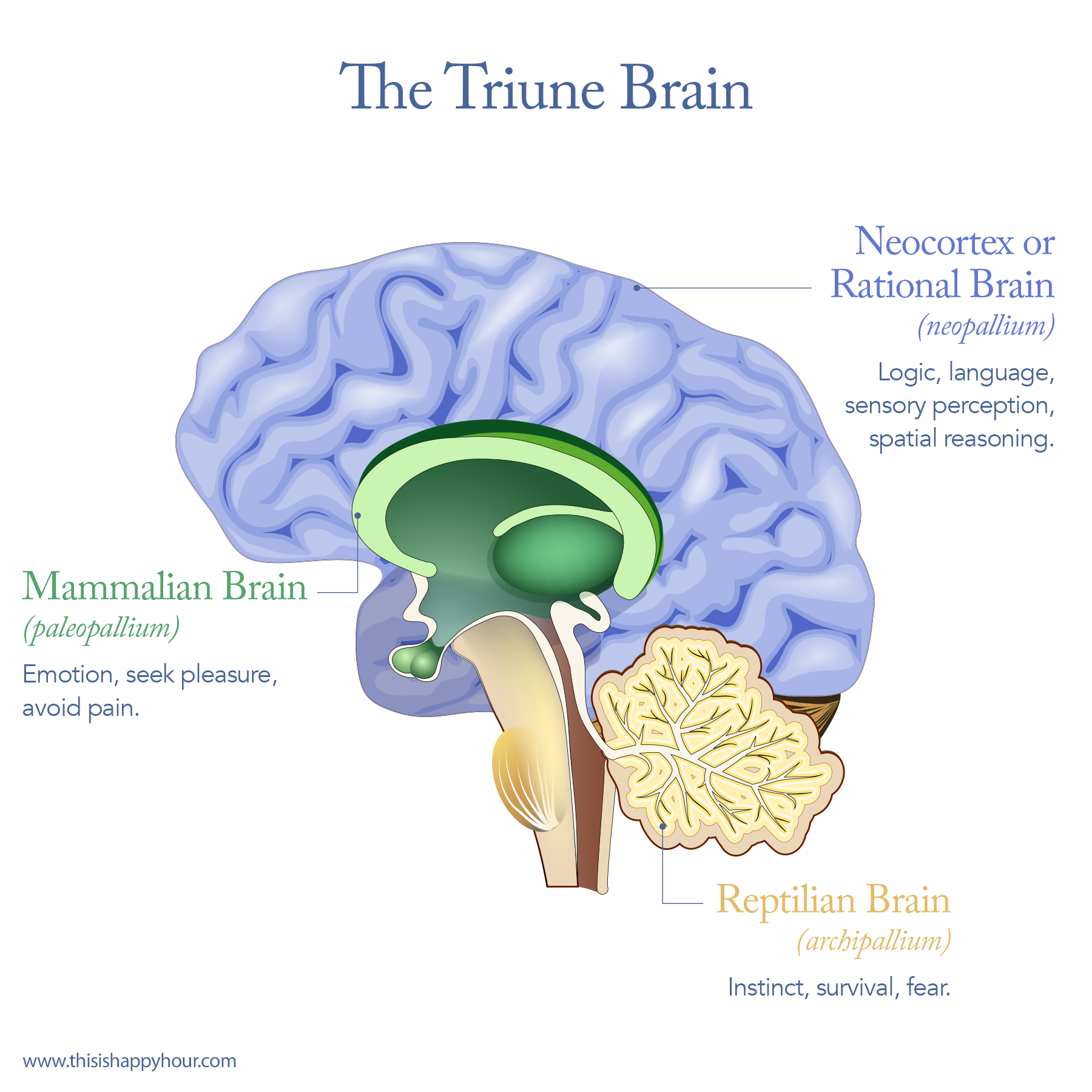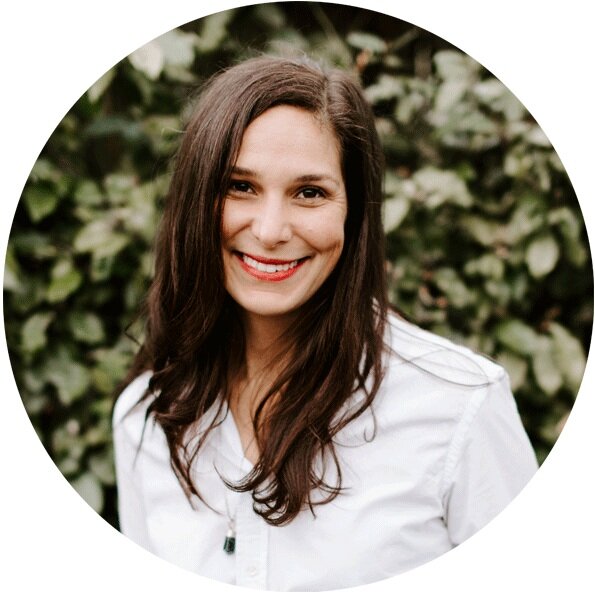Time sure flies when you’re having fun… and being inspired! Our guests during Mental Health Month have shared their hearts and a TON of knowledge, and this week has been no different. Let’s dive into our recap of week 4!

Nicole Volpetti
Nicole is the founder of Creative Girl Corporate World, a community built for women who are on a journey of self-discovery. She is on a mission to to empower women to live and lead consciously; guiding them to deepen their inner self-connection.
On Mental Wellness
Mental wellness doesn’t have to look like perfection, it can be little things that you incorporate into each day which serve as stepping stones towards bigger leaps of mental wellness.
Try starting your day by turning away from your phone and tuning into your needs:
- Instead of fighting it, Nicole has accepted that she is a slow riser, so has built 30 minutes into her schedule to allow herself to wake up gently.
- She enjoys spending 10 – 20 minutes to enjoy her coffee while journaling, or listening to music or a podcast.
Be aware of being on autopilot:
- Recognize your feelings and when you feel out of alignment
- Experiment with various spiritual and wellness tools (bath, breath work, meditation, movement, etc) until you know what works for you, so that you can develop an emotional wellbeing toolkit to tap into during times of stress
On Physical Wellness
Take a moment to notice your body and what it might need throughout the day. This might look like taking short breaks to stand up and stretch, or going for a walk. When it comes to working out, give yourself a little grace. It’s not about perfection, it’s about progress!
On Mindful Eating
Try your best to step away from your computer at lunchtime and enjoy your food with intention. This can help with:
- Taking a moment to slow down mentally
- Better digestion
- Creating more awareness around your body’s need and satiety cues
Nicole loves to eat outdoors while listening to upbeat music.
Prompts to Help you Explore your Wellness:
- What are some of the things I already do every morning that I can start enjoying more by taking the time to slow down?
- What area(s)of my body feels like it needs my attention? Pro tip: identify the areas in your body that need your notice using your intuition, then research what Chakra (our Spiritual energy centers) is related to that area of the body.
- Look for the emotions associated with that Chakra and how that might be manifesting physically.
- What tools have I cultivated to support emotional well-being?
For more, visit Creative Girl Corporate World

Valerie Martin
Valerie is a licensed therapist, yoga teacher, animal advocate, and literal tree hugger. Every weekday morning she hosts the podcast {re:}charge, which is all about supporting you in getting aligned and energized for the day ahead.
On Simplifying your Routine
The first thing she does after waking up is move her body as a way to connect with her body before connecting with her brain. Val recommends simplifying your routine with consistency. By removing extra decisions, like what to eat or which workout to do, you can start your day off in an organized way, and you’re more likely to stay consistent with your goals.
On Getting Outside
Getting outside daily by taking walks and connecting with nature is a non-negotiable for Val’s mental wellness. Breathing fresh air is such a basic element of self-care, yet so many of us skip over it.
Fun fact: Val often records her podcast while taking her walks to capture the sounds of nature in the background.
On Being Inspired
Val encourages everyone to find something they can read every day that can help inspire, realign, or ground yourself.
Write out a list of your “essentials”, the things that ground your or bring you joy. When you’re having an off day, there’s no need to make a decision about what might help, you can simply refer back to your list.
Pro Tip: Val hangs a childhood picture of herself in her office as a reminder to be kind to herself.
Follow Val on Instagram.

April Dace
April is a respected producer and creator of music videos, documentary shorts, photography and television series. As the owner of Dace & Mohr, April’s name is tied to all kinds of high profile projects, yet she’s maintained a passion for personal connection and authenticity.
On Having the Confidence to Start Her Own Business
April flipped the production company model on its head, by seeing an opportunity to create a roster of directors, producers and buyers who aren’t tied in to the old contract model. It took a while to get the courage to go out on her own, but she recognized that she had it in her to take the leap and bring her vision to life. Her top tips for those wanting to start their own business:
- It has to come from your heart – something you’re passionate about.
- Don’t be afraid of a new approach.
- You will have moments of fear, but trust your gut.
- Don’t be tempted to do something for success or recognition that is not for you – you will be miserable.
- Lead with your heart.
On Mental Resilience
When one aspect of her overall wellness is lacking, she can feel it begin to affect other areas of her life, which is why mental wellness is an important part of April’s overall wellbeing. By nature, the entertainment industry is an industry of rejection, so to keep herself in a good mental space, April surrounds herself with life giving people. This looks like:
- A support system of people who build you up, and not knock you down.
- Surround yourself with people whose skills complement your strengths, but also challenge you to grow. People who will push you back into the ring.
- Negativity can be contagious, so it’s important to cultivate a positive culture, with a healthy perspective on life’s ups and downs.
When things get tough, April taps into her spirituality and faith, with the understanding that she doesn’t have to be a fountain of confidence all by herself. When she feels out of alignment she leans in to exercise and physical activity. She also checks in with herself:
- What is true?
- What am I feeling?
- What could be causing this?
- She then leans into those truths, acknowledging that this is not all for her to carry.
For more, visit Dace & Mohr.

Kelly Hagan
When not performing violin, Kelly is the patient advocate for companies and publications that deal with the treatment of clinical depression. She aims to shed light on treatment options, new technologies and new outlooks on mental health.
On Depression
Kelly was diagnosed with clinical depression when she was 13, and it took every ounce of energy to hide it. Kelly was a different face of depression. There’s a huge misconception that depression looks like one thing, but Kelly was so high functioning, that it was hard to spot. For Kelly, depression wasn’t sadness, so much as it was feeling completely numb. She unsuccessfully tried dozens of medications, which either had horrific side effects, or didn’t work at all for her. Just like there is no one-size-fits-all face of depression, there is also no one-size-fits all medication. This can lead to many people opting to take medication that isn’t effective for them, just they don’t experience any side effects. That was the case for Kelly.
By 21 years old, Kelly had become suicidal. Luckily, she was introduced to Transcranial Magnetic Stimulation (TMS) which ended the numbness and fog that she’d had to live with for 10 years. This led to Kelly becoming a patient advocate, because she realized that depression isn’t something you just have to live with, you just need to find the right treatment for you.
“It’s one thing to have a bad day, or a bad week, but when you start to have a series of bad months in a row, it’s time to reevaluate what’s going on, and get some help.”
On Transcranial Magnetic Stimulation
In Kelly’s experience, TMS uses magnetic pulses to stimulate nerves in a clinically depressed brain. Foil is fitted over the forehead and rapid magnetic pulses are administered for about 30 minutes. The pulses were painless – Kelly likened them to the feeling of someone tapping on your forehead. Typically, people need to go for 20-30 treatments.
If you’re trying to decide whether or not TMS is the right treatment for you, you need to understand the difference between clinical and situational depression:
- Clinical Depression: Is not influenced by outside factors and will not go away without treatment
- Situational Depression: Outside factors and experiences can create a situational depression – all of us can go through it from time to time, to a certain degree.
On the Healing Power of Music
When Kelly still suffered from depression, playing music allowed her to feel alive and feel a sense of relief. This isn’t an isolated experience or a coincidence – music is extremely unique in how it activates the brain. No other activity uses all the sense the way playing music does. It also causes the brain to release dopamine a.k.a. the feel-good hormone.
On the Music Industry
The music industry can be very mental fatiguing, Kelly’s advice is to find small ways to take the career aspect out of it for as long as you need to, because it can be easy to get caught up in the hustle and lose the craft. Regular check ins can help prevent you from burning your passion to the ground.
On Advocacy
Kelly is a patient advocate for Neurostar, the first TMS company to receive FDA approval in the USA. Being a patient advocate means that Kelly is the face of the treatment, letting people know her experience and spreading the word. After going through something as horrible as her clinical depression, Kelly wanted to find a purpose for her experience. She wants to help anyone who feels as lost and unfixable as she did for so many years.
“If I had survived cancer, or a life saving surgery, I wouldn’t be embarrassed to talk about that experience, so this [depression] shouldn’t be any different.”
Follow Kelly on Instagram.

